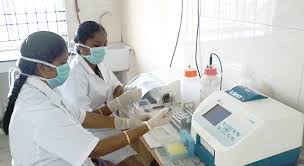Biomedical colleges play a crucial role in advancing the field of medicine. These institutions equip students with the knowledge and skills necessary to solve real-world health challenges, drive innovation, and improve outcomes through compassionate, patient-centered care. With their unique combination of education, research, and community collaboration, Biomedical colleges are laying the foundation for the future of healthcare.
Developing Future Medical Leaders
The primary mission of biomedical colleges is to educate and train future healthcare professionals and researchers. They provide students with a combination of rigorous academic programs and hands-on experiences, empowering them to tackle some of the most pressing medical challenges. From health equity research to addressing disparities in women’s health outcomes, biomedical colleges focus on fostering a new generation of problem-solvers equipped to think critically and act effectively.
Students also benefit from access to cutting-edge technology, labs, and mentorship from leading experts in the field. This exposure ensures they are well-versed in modern medical innovations and prepared to translate that knowledge into meaningful advancements.
Tackling Community Health and Patient-Centered Care
Biomedical colleges recognize the importance of addressing the broader factors that influence health, such as environmental impacts and societal trends. By collaborating with public health organizations, governments, and community health groups, these institutions create initiatives that tackle critical health disparities and trends at both local and global levels.
For instance, they drive efforts to improve health outcomes in underserved regions, emphasizing Patient-centered care services and tailored solutions. Community involvement helps align medical research and education with the needs of Entire community populations, ensuring whole-person care remains a key focus.
Advancing Medical Innovation Through Research
One of the hallmarks of biomedical colleges is their contribution to groundbreaking research. These institutions act as hubs for innovation, where researchers work on projects ranging from violence prevention efforts to the environmental factors influencing public health. With every discovery, they bridge the gap between theory and practice, bringing life-changing solutions into the healthcare system.
Furthermore, biomedical colleges are instrumental in accelerating the adoption of emerging technologies, such as personalized medicine and AI-driven diagnostics. These advancements not only improve healthcare delivery but also expand access to care for patients in need.
Building a Healthier Tomorrow
Biomedical colleges are indispensable to the future of medicine. By advancing education, research, and community-focused health initiatives, they are creating a positive ripple effect that benefits patients, healthcare professionals, and society as a whole. Their efforts to promote patient-centered care, global health trends, and equitable outcomes reinforce their critical role in shaping the healthcare landscape.


